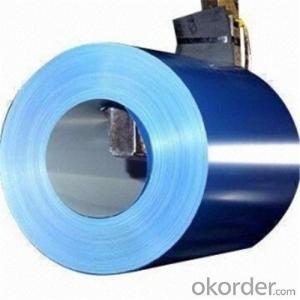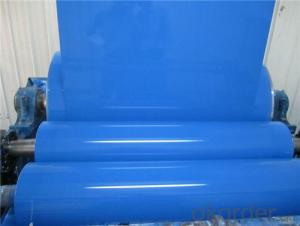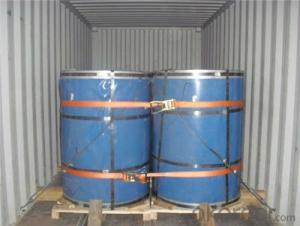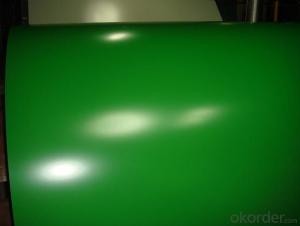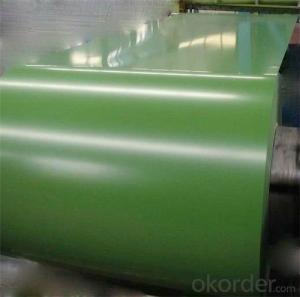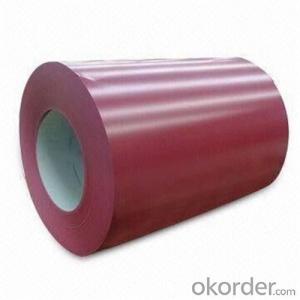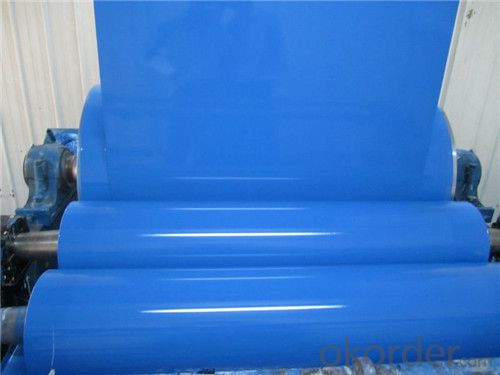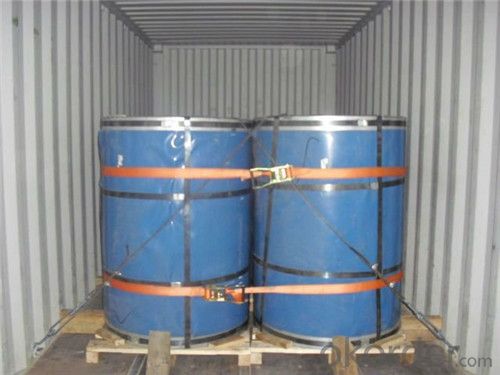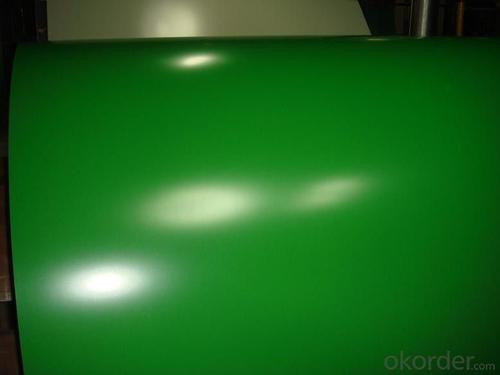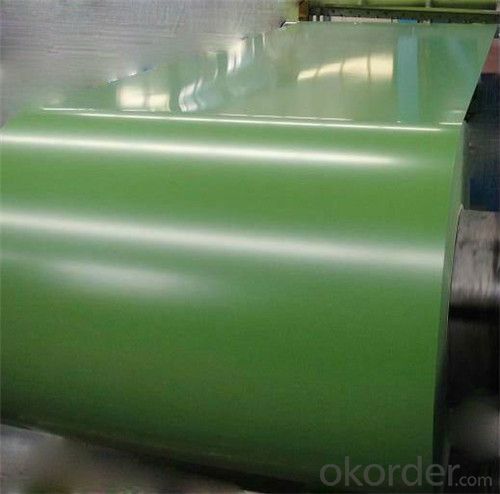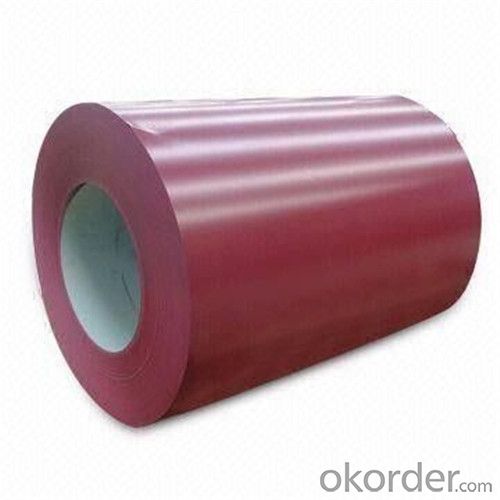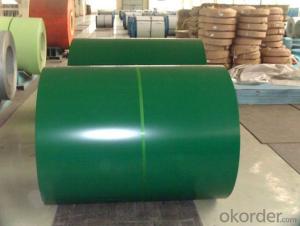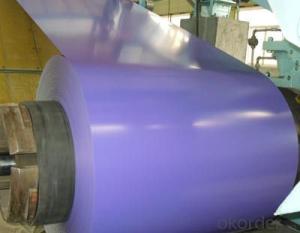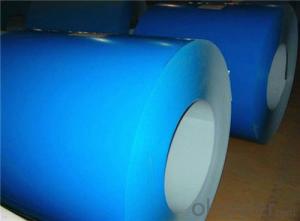BMP Z75 Rolled Steel Coil for Sandwich Panel
- Loading Port:
- Tianjin
- Payment Terms:
- TT OR LC
- Min Order Qty:
- 60 m.t.
- Supply Capability:
- 30000 m.t./month
OKorder Service Pledge
OKorder Financial Service
You Might Also Like
Structure of BMP Z75 Rolled Steel Coil for Sandwich Panel
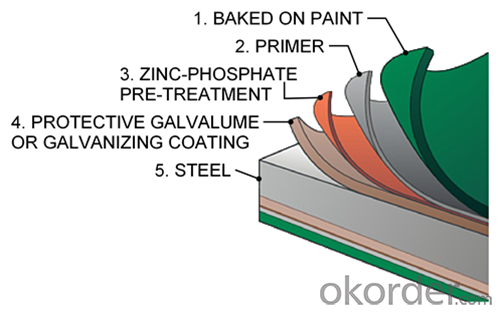
Description of BMP Z75 Rolled Steel Coil for Sandwich Panel
Prepainted Rolled steel Coil is a kind of coated steel coil/sheet. With the cold rolled steel of different strength and thickness as substrate, it is produced through applying Al-Zn coat on both faces by hot dip process. In its coating, Al accounts for about 55%, Si 1.6%, while the remaining is Zn. Aluminum zinc coils enjoys both the physical protective feature and durability of Al and the electrochemical protective property of Zn. And its surface has bright silver color and regular embossed-like figure, which are highly decorative.
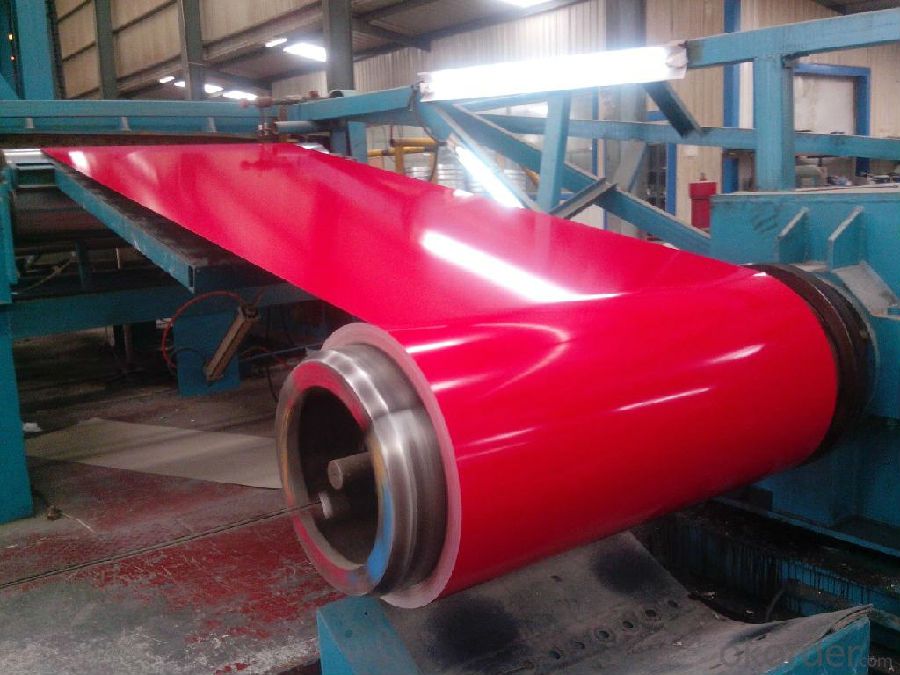
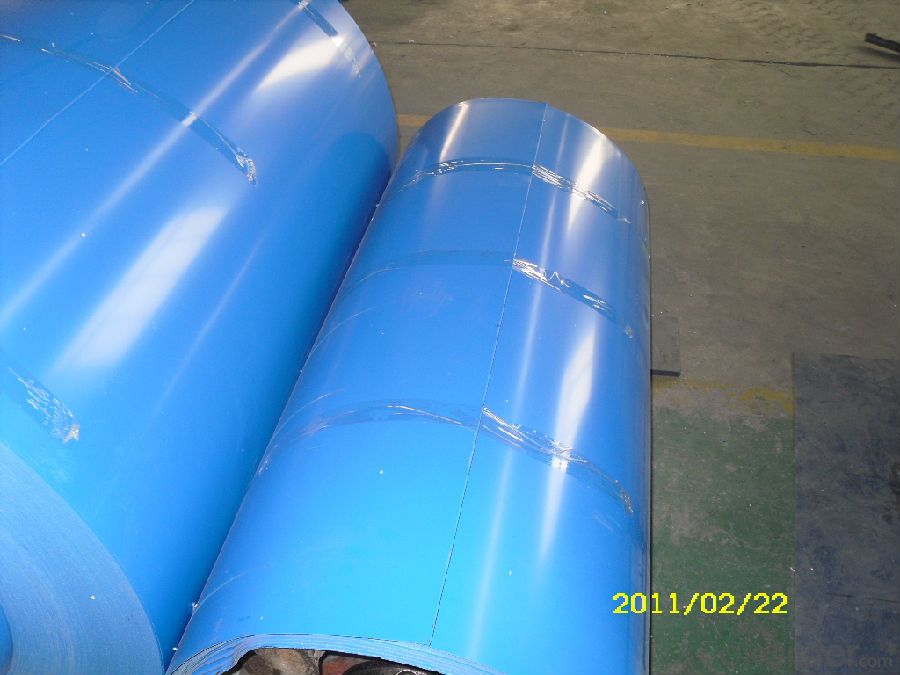
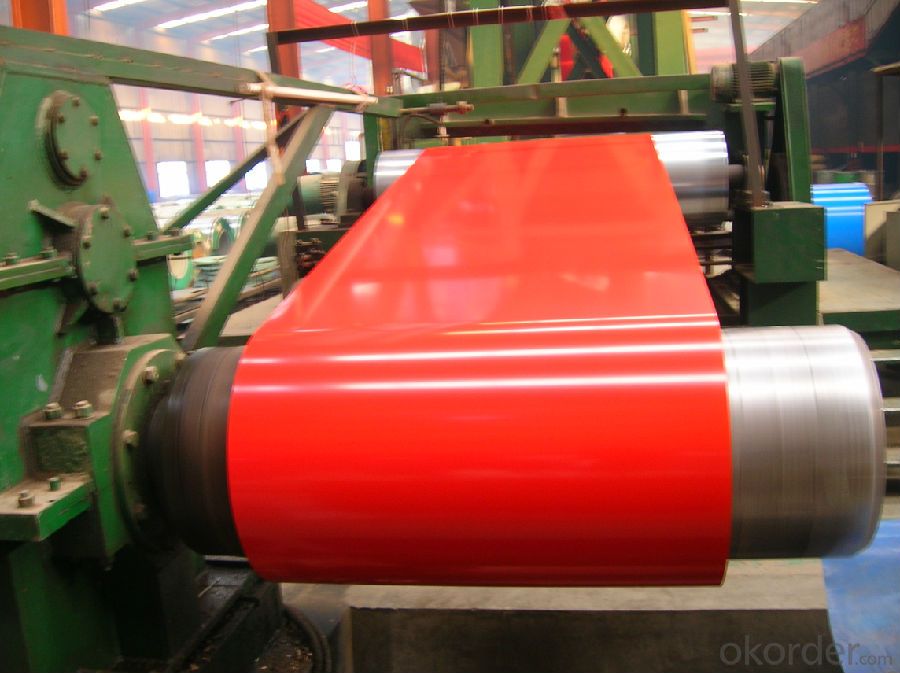
Main Feature of BMP Z75 Rolled Steel Coil for Sandwich Panel
1.Corrosion resistance: It mainly depends on the aluminum protection. When the zinc being worn, the aluminum will form a dense layer of aluminum oxide, resist corrosion material to prevent further corrosion inside.
2. Heat resistance: Aluminum zinc alloy steel sheet has excellent heat resistance, can withstand high temperatures over 300 centigrade, and is similar with aluminized steel high temperature oxidation resistance. It often used in chimney pipes, ovens, fluorescent lighting device and the device cover.
3. Heat reflective: Galvanized steel plate heat-reflective high rate is twice as galvanized steel, often used to make insulation materials.
4. Economy: Because density of 55% AL-Zn is smaller than the density of Zn, so in the same weight and thickness of Galvanized zinc layer, aluminum-zinc steel plate is larger area more than 3% of galvanized steel sheet.
Applications of BMP Z75 Rolled Steel Coil for Sandwich Panel
1. Construction and building: roofing; ventilating duct; handrail; partition panel;etc.
2. Electric appliance: refrigerator; washing machine; refrigerator; DVD;etc.
3.Transportation: oil tank; gas tank;pentane tank; road sign; etc.
4.Agriculture:barn; etc.
5.Others:vending machine; game machine; etc.
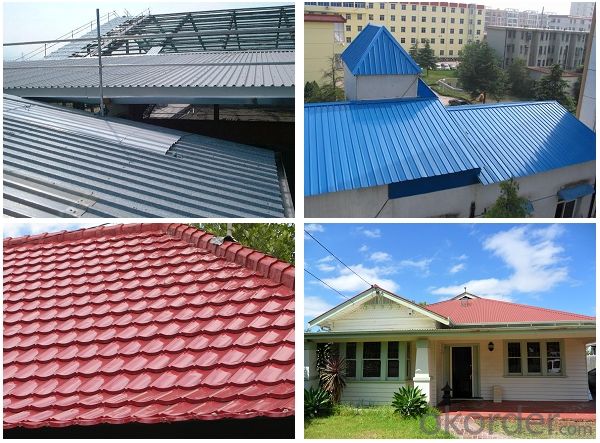
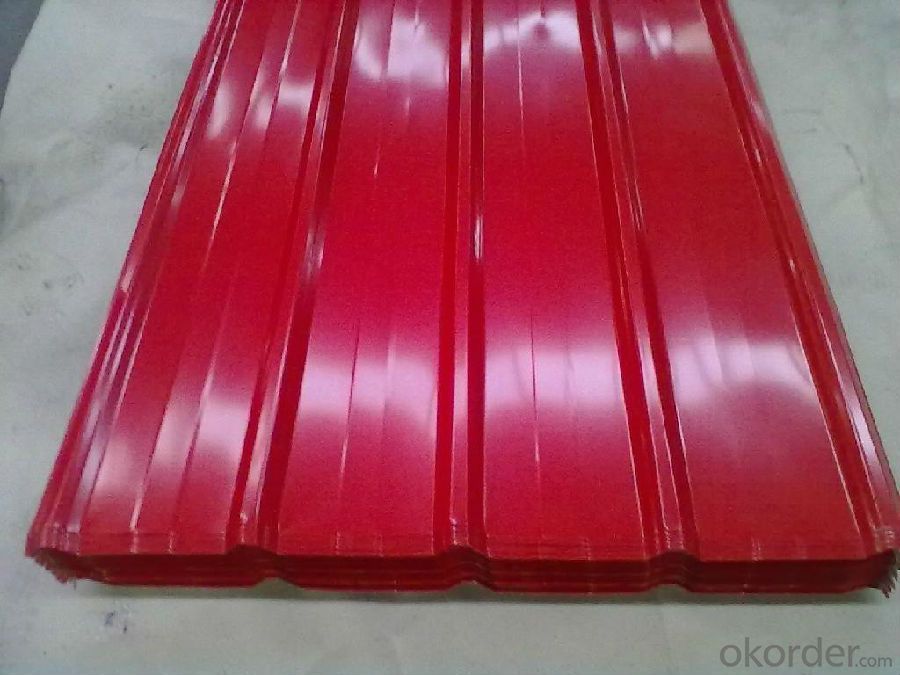
Specifications of BMP Z75 Rolled Steel Coil for Sandwich Panel
Product | BMP Z75 Rolled Steel Coil for Sandwich Panel |
Material Grade | SGCC / SGCH / DX51D+AZ, etc |
Thickness | 0.6-3.0mm |
Width | 500-1500mm |
Tolerance | Thickness: +/-0.02mm , Width:+/-2mm |
Zinc-coating | Z30-150g/m2 |
Technique | Raw material: Hot rolled steel coil --> Cold rolled_>hot dipped galvalume |
Surface | Dried, Chromated, Unoiled |
Spangle | Regular spangle , small spangle, zero spangle |
ID | 508MM 610MM |
Coil weight | 1-25MT |
Export package | Cardboard inner sleeves, Waterproof paper, galvanized steel covered and steel strip packed |
FAQ of BMP Z75 Rolled Steel Coil for Sandwich Panel
We have organized several common questions for our clients,may help you sincerely:
1. What is the minimum order quantity ?
Our MOQ is 50mt for each size. And we will consider to give more discount if you make big order like 1000 tons and more. Further more, the more appropriate payment term your offer the better price we can provide.
2. How long can we receive the product after purchase?
Our delivery time is around 30 day after order confirmed.
3. How to make sure the quality of the order?
We have quality control team over 40 QC every link from raw material to final product we have strict quality test.
- Q: How are steel coils loaded onto a truck?
- Steel coils are typically loaded onto a truck using a combination of machinery and manual labor. The process involves several steps to ensure the safe and efficient loading of the coils. Firstly, the truck must be properly prepared for the loading process. This includes ensuring that the truck's bed is clean and free from any debris or obstacles that may interfere with the loading. The truck's bed may also be lined with protective materials such as rubber mats to prevent damage to both the coils and the truck. Next, a forklift or crane is used to lift and position the steel coils onto the truck. The forklift or crane operator must carefully maneuver the coils into place, ensuring that they are balanced and secured to prevent any shifting during transportation. It is essential to follow proper lifting techniques and safety protocols to avoid accidents or damage to the coils. Once the coils are positioned on the truck, they may be secured using various methods. This can include using straps, chains, or other restraints to hold the coils in place and prevent them from moving or falling during transit. The restraints must be properly tightened and checked to ensure they can withstand the weight and movement of the coils. It is important to note that the specific loading process may vary depending on the size and weight of the steel coils, as well as the equipment available. Some trucks may have specialized loading systems designed specifically for steel coils, which can streamline the loading process and enhance safety. Overall, loading steel coils onto a truck requires careful planning, skilled operators, and appropriate equipment. Following proper procedures and safety measures is crucial to ensure the successful transportation of the coils and to prevent any accidents or damage.
- Q: describe the benifits and disadvantages of the using steel as a material for fasteners
- Relatively cheap, strong, and non-toxic. For Carbon Steel alloys rust and corrosion are problems. For stainless alloys, cost becomes the problem [and corrosion is not eliminated]
- Q: What are the different types of steel coil handling systems?
- There are several types of steel coil handling systems, including overhead crane systems, coil grab systems, coil transfer cars, and coil tilters. Each system is designed to efficiently and safely handle steel coils in different environments and applications.
- Q: What are the different types of steel coil packaging?
- There are several types of steel coil packaging, including steel strapping, stretch wrapping, shrink wrapping, and wooden crates.
- Q: What are the dimensions of steel coils used in the agricultural structure industry?
- The dimensions of steel coils utilized in the agricultural structure sector may differ based on the particular application and requirements at hand. Nevertheless, standard dimensions for steel coils in this industry span from 0.5mm to 3mm in thickness and from 600mm to 1500mm in width. The length of the coils can also vary, but typically falls between 1000mm and 3000mm. These dimensions afford flexibility in constructing agricultural structures like barns, sheds, and storage facilities, all while ensuring ample strength and durability. It is worth noting that precise dimensions may vary depending on the manufacturer and the unique demands of the agricultural project.
- Q: Can steel coils be coated with magnetically attractive materials?
- Yes, steel coils can be coated with magnetically attractive materials.
- Q: How can I owe a Pre-engineered Steel Building?
- You just have to do small efforts for owing a steel building: Firstly you have to finalize a steel building company for construction work. After finalizing the steel building company, the next step is the paperwork - the agreements and contracts. Some steel building companies may also ask for a verbal approval for the factories to get the work started.
- Q: Hello. right now i have been playing electric and acoustic guitar for 6 years. I currently became very interested in learning the pedal steel guitar. I will be teaching myself so is it really hard to learn? Are there a lot of songs online that could give me tabs? Basically im asking if it is worthwhile to spend a lot of money. I dont want it if there are only 3 songs im gona learn. im up for the challenge im just curious how hard it was to learn. thanks for your help.
- The okorder /... Beware of eBay deals unless you know what you're buying. To start, you should get a 10-string single neck with 3 pedals and 4 levers. Some of the student models don't have as many levers and aren't capable of all the changes you need. Stay away from the ShoBud Maverick...you'll outgrow it in a couple of months. Often it makes more sense to buy a used professional model...you'll eventually need one, and they hold their value better than a student model. You'll also need a volume pedal, bar, thumb and finger picks. For now, your guitar amp will be ok. Playing the guitar: There are several tunings and lots of different combinations of levers, but the basic guitar is a 10 string E9 tuning. It's almost an open E but with a few extra notes. The pedals and levers raise and lower the pitch of selected strings. Chord changes are made by moving the bar and pressing pedals and levers. The volume pedal helps you swell and sustain notes. Steel has it's own unique tablature which reflects all these changes. If you have any other questions, feel free to email me or just join the PSG forum and ask there.
- Q: can u use stainless steel to make a coin? why or why not? answers based on facts plz.
- Stainless steel has been used by some countries to make coins, but it's not an ideal metal. When a coin is struck, a die comes down and strikes the blank with many tons of force (the blank is also sitting on top of another die--one has the image on the obverse (front) of the coin, while the other die has the image of the reverse of the coin). When the die strikes the blank, the force causes the metal in the blank to flow into the recesses of the die. The problem with stainless steel is that it doesn't want to flow into the die. To get an image, either the relief (how high the raised portion of the design will be) has to be very low, and the coin has to have a simple design, or they have to greatly increase the pressure of the strike. This slows the coining press down, and greatly shortens the life of the dies.
- Q: How are steel coils used in the manufacturing of suspension systems?
- Steel coils are used in the manufacturing of suspension systems as they provide the necessary support and cushioning for vehicles. These coils, also known as coil springs, are placed between the vehicle's chassis and the wheels to absorb impact and ensure a smooth ride. The steel coils are designed to compress and expand under the weight and movement of the vehicle, effectively absorbing shocks, vibrations, and uneven road surfaces. This helps to improve stability, handling, and overall comfort for the driver and passengers.
Send your message to us
BMP Z75 Rolled Steel Coil for Sandwich Panel
- Loading Port:
- Tianjin
- Payment Terms:
- TT OR LC
- Min Order Qty:
- 60 m.t.
- Supply Capability:
- 30000 m.t./month
OKorder Service Pledge
OKorder Financial Service
Similar products
Hot products
Hot Searches
Related keywords
